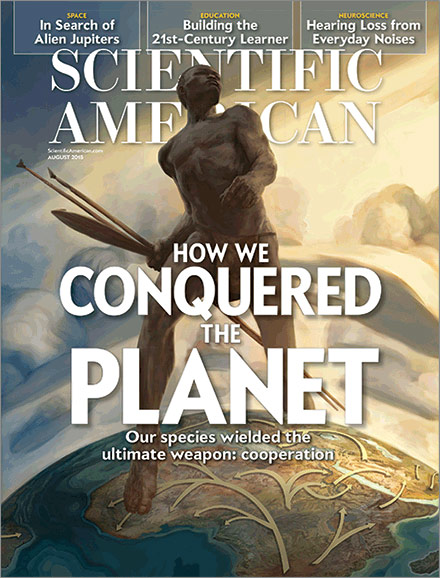An ironic coincidence — on Monday, June 15, I read two articles back-to-back: Andrew Newberg’s op ed piece in USA Today entitled “This is Your Brain on Religion” and Jeff Sharlet’s cover story for the May issue of Harper’s magazine, “Jesus Killed Mohammed: The Crusade for a Christian Military.”
Newberg is a neuroscience specializing in “neurotheology”, or the study of what happens to your brain when you do religious things, like pray, or think spiritual thoughts, or read scripture, or listen to a sermon. Newberg begins by recounting that in high school he had a Christian girlfriend (he is Jewish) whose family called themselves “born-again Christians”. Although they were always pleasant to him, “they were quite clear that in their view I had deeply sinned by not turning to Jesus. Oh, and because of this, I was going to hell.” That’s nice.
What are the consequences of hearing such negative ideas? Newberg concludes:
There seems to be little question that when people view God as loving, forgiving, compassionate and supportive, this more likely results in a very positive view of themselves, and of the world around them. But when God is viewed as dispassionate, vengeful and unforgiving, this can have deleterious effects on one’s physical and mental health. Again, the research is clear: If you ruminate on negative emotions, they activate the areas of the brain that are involved in anger, fear and stress. This can ultimately damage important parts of the brain and the body. What’s worse, negative emotions can spill over into outward behaviors that generate fear, distrust, hatred, animosity and violence toward people who hold different or opposing beliefs. Thus, it becomes more easy to believe that “I, and my religion, is right and you, and your religion, are wrong.”
Newberg goes on to explain that most Christians are not so judgmental and negative. In fact, he says, it is maybe only one percent. “Unfortunately,” he explains, “this minority often attracts the greatest amount of camera time and ink, too. But what is truly frightening is the fact that 1% translates into 3 million potentially violent citizens in our country alone. And this certainly plays out on the global stage, as beliefs conflict and terrorism fosters fear, hatred and ultimately violence.”
Indeed, in Sharlet’s investigative piece we learn that a good number of these 1% are armed and dangerous — they’re in the military. According to Sharlet, there is a movement afoot to Christianize the military, and they are truly soldiers for Christ — the title of his article comes from an inscription in large red letters painted on the side of a Bradley Fighting Vehicle that reads in Arabic script: “Jesus Killed Mohammed.” Yesserie, that should endear our troops to the Muslim countries, whose own signs signaling their attitude toward Americans often feature “Death to” on them.
That is more than a little unfortunate, because the military has actually lagged behind the general population in religiosity, with 20% of the roughly 1.4 million active-duty personnel telling the Department of Defense that they have “no religious preference,” which is higher than the 16.1% of the American public who tick the same box on similar surveys conducted by Gallup and others (although among active military only .5% — one half of one percent — call themselves “atheist” or “agnostic”, whereas around 8% of the general public does). The other 80% identify with evangelical or Pentecostal (22%), Catholic (19%), another 20% as “Christian” (incorporating other Christian sects), and assorted other religions, but next to no Jews (1/300) or Muslims (1/400).
None of this would matter were it not for the fact that soldiers are sworn into the military to protect and defend the Constitution of the United States, not the holy book of their religion. This is what it means to be a secular nation: not that the majority of its citizens are secular, but that its government favors no religion and, in fact, separates church and state. That is not a problem for most religious soldiers, but for evangelicals, by definition they are suppose to evangelize (or else they wouldn’t be evangelicals), and that means trying to convert those around them to evangelical Christianity. And those around them are either fellow soldiers or citizens of an occupied country. Enter the Officers’ Christian Fellowship (OCF), with 15,000 members in 80% of military bases, and growing 3% per annum. Sharlet quotes OCF director Lieutenant General Bruce L. Fister, who equated the “global war on terror” to “a spiritual battle of the highest magnitude.” The Muslims have their jihad and the Christians have their spiritual battle. Onward Christian Soldiers.
In researching his story, Sharlet met with Lieutenant General John Regni, who was brought into the Air Force Academy to straighten out the religious conflict brewing there between evangelicals and others. According to Sharlet:
I began our phone conversation with what I thought was a softball, an opportunity for the general to wax constitutional about First Amendment freedoms. “How do you see the balance between the Free Exercise Clause and the Establishment Clause?” I asked.
There was a long pause. Civilians might reasonably plead ignorance, but not a general who has sworn on his life to defend these words: “Congress shall make no law respecting the establishment of religion or prohibiting the free exercise thereof.”
“I have to write those things down,” Regni finally answered. “What did you say those constitutional things were again?”
If that were not embarrassing enough, Sharlet documents how copies of Pastor Rick Warren’s Purpose Driven Life were distributed to high ranking officers by a superior officer, who instructed them to read it and live it. Why? Because, unbelievably (given the above statistics), the evangelicals in the military believe, according to Air Force Lieutenant Colonel William McCoy, author of Under Orders: A Spiritual Handbook for Military Personnel (endorsed by General David Petraeus when he commanded our troops in Iraq), “Under the rubric of free speech and the twisted idea of separation of church and state, there has evolved more and more an anti-Christian bias in this country.”
The rest of Sharlet’s article focuses on the Military Religious Freedom Foundation, started by Michael “Mikey” Weinstein, whom the three-star General William “Jerry” Boykin called demon possessed, and who was denounced by Ted Haggard, whom Weinstein challenged to a boxing match, never accepted. If Andrew Newberg would like to investigate the brain waves of religious extremists, he need go no further than the evangelical Christians who write Weinstein letters:
“You are costing lives by dividing military personnel and undermining troops,” reads one missive. “Their blood is on your hands.” Much of it is juvenile: “you little bald-headed fag,” reads an email Mikey received after an appearance on CNN, “what the fuck are you doing with an organization of this title when the purpose of your group is not to encourage religious freedom, but to DENY religious freedom?” Quite a bit of it is anti-Semitic: “Once again, the Oy Vey! crowd whines. This jew used to be an Air Force lawyer and got the email” — a solicitation by Air Force General Jack Catton for campaign donations to put “more Christian men” in Congress, which Mikey made public — ”just one more example of why filthy, hook-nosed jews should be purged from our society.”
And that’s just the letters. Weinstein: “We’ve had dead animals on the porch. Beer bottles, feces thrown at the house. I don’t even think about it. I view it as if I was Barry Bonds about to go to bat in Dodger Stadium and people are booing. You want a piece of me? Get in line, buddy. Pack a lunch.”
Newberg is right, of course, when he says that most Christians do not behave this way, but for those who do it is the logic of their beliefs that lead them to condemn those who do not accept Christ as their savior, for according to the New Testament that is the only way into heaven and thus the only path to salvation and eternal life. If you really believe that, you also have to believe that you are right and everyone who believes differently is wrong, and being an evangelical, it is your duty — your mission — to tell them so in no uncertain terms. Now, fortunately, most people are nice and mind their own business, and many Christians also share that temperament, but that’s just the luck of the genetic draw (temperament being roughly 50% heritable). We need a higher moral and legal principle to protect all the rest of us from those who do not happen to believe in the principle of tolerance and “to each his own.”
That higher moral and legal principle is freedom. Freedom is at the core of the Constitution and the Bill of Rights, and it is there to protect the minority from the tyranny of the majority, the deepest flaw in democracy. The freedom to believe whatever you want, and to keep government out of the religion business is, counter-intuitively, the best thing that ever happened to religion. Religions thrive in America because the secular government of these United States allows them to. Of course anyone in the majority religion would like their government to give them special privileges — that’s just human nature. But once you establish a precedent for the government to grant special privileges of the majority religion, how will you feel if, say, in 50 or 100 years from now Islam is the dominant religion of America? (It could happen. It is already happening in Europe.) Still want that special arrangement now that your religion is in the minority? I don’t think so. As Thomas Moore explained in A Man for All Seasons:
Roper: Now you give the Devil benefit of law!
Moore: Yes, what would you do? Cut a road through the law to get after the Devil?
Roper: Yes. I’d cut down every law in England to do that.
Moore: And when the last law was down, and the Devil turned on you … where would you hide? I give the Devil benefit of law for my own safety’s sake.
Amen brother!




